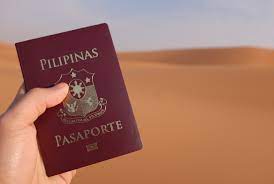
Introduction:
The policy holds great significance Turkey visa for Filipino citizens seeking to explore the rich history, diverse landscapes, and unique cultural experiences within Turkey’s borders. This essay aims to provide a comprehensive overview of the visa requirements and application process for Filipinos, emphasizing the potential benefits of fostering travel and cultural exchange between the two nations.
Background on Turkey-Philippines Relations:
Turkey and the Philippines enjoy friendly diplomatic relations, encouraging mutual collaboration and understanding between the two nations. By facilitating the visa process, both countries aim to strengthen these ties and promote people-to-people interactions, fostering cultural understanding and economic growth in the process.
Overview of Turkey’s Visa Policy:
Turkey offers various entry options for international travelers, including e-Visas and visas obtained on arrival. However, citizens of the Philippines are currently required to apply for a visa from the nearest Turkish embassy or consulate before their planned travel.
Understanding the Visa Application Process:
Filipino citizens seeking a Turkey visa must submit a completed application form, relevant supporting documents (such as a valid passport, travel itinerary, proof of accommodation, and financial statements), and meet specific criteria, including the purpose and duration of their stay.
Visa Types and Duration:
Various visa types cater to different travel purposes, including tourism, business, study, or employment. The duration granted depends on the individual’s purpose and eligibility. It is crucial for Filipino applicants to review and choose the appropriate visa type based on their specific intentions.
Benefits of Travel and Cultural Exchange:
Traveling to Turkey offers significant benefits to Filipino citizens, both personally and professionally. Immersing TURKEY VISA FOR PAKISTAN CITIZENS oneself in a foreign culture promotes tolerance, empathy, and a global mindset. Additionally, exchanging insights and learning from Turkish traditions and practices can nurture cross-cultural competence, enhancing communication and cooperation between the two nations.
Economic Opportunities:
Turkey’s booming tourism industry presents opportunities for Filipino entrepreneurs and investors. Understanding the visa requirements enables aspiring business owners to explore investment prospects, establish partnerships, and contribute to both countries’ economic growth.
Academic and Professional Development:
Turkey hosts reputable universities and research institutions that offer diverse academic programs and scholarship opportunities. Obtaining a study visa opens doors for Filipino students to access quality education and gain exposure to a different educational system, resulting in personal growth and expanded career prospects.
Cultural Enrichment and Appreciation:
Turkey’s vibrant heritage, architectural marvels, and culinary delights provide a platform for Filipino citizens to expand their cultural knowledge and appreciation. By engaging with Turkish locals, experiencing traditional festivities, and exploring historical landmarks, Filipinos can foster a deeper understanding of Turkey’s rich history and traditions.
Strengthening Diplomatic Bonds:
Facilitating visa processes for Filipino citizens to visit Turkey strengthens cultural diplomacy and fosters positive relations between the nations. As citizens return to the Philippines, they bring back experiences that contribute to shaping public opinion, enhancing mutual understanding, and potentially deepening diplomatic engagements between governments.
Conclusion:
Supporting the Turkey visa policy for Filipino citizens unlocks vast potential for cross-cultural exchange, economic growth, and strengthened bilateral relations. By simplifying the visa application process, both governments encourage travel and cultural immersion, providing valuable opportunities for personal development and fostering cultural appreciation between Turkey and the Philippines.





